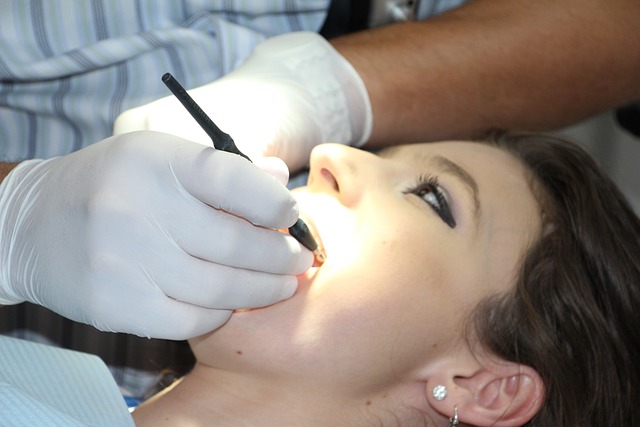Introduction –
Temporomandibular joint disorder, commonly known as TMJ disorder, is a condition that affects the jaw joint and the muscles that control its movement, causing a range of symptoms such as jaw pain, clicking or popping sounds, and difficulty opening or closing the mouth. TMJ disorder can have multiple causes, including stress, teeth grinding, and bite misalignment, and can be exacerbated by habits such as chewing gum or clenching the teeth. While mild TMJ symptoms may improve with self-care measures and conservative treatment, more severe cases may require professional medical or dental treatment, such as physical therapy, oral appliances, or surgery.
Causes and symptoms of TMJ disorder
Temporomandibular joint (TMJ) disorder causes and symptoms can vary from person to person, but some common ones include:
Causes:
- Trauma to the jaw joint or muscles
- Arthritis in the joint
- Misaligned bite
- Teeth grinding (bruxism)
- Stress and tension that lead to clenching of the jaw muscles
- Genetic predisposition
Symptoms:
- Pain or tenderness in the jaw joint: Pain or tenderness in the temporomandibular joint (TMJ) is a common symptom of TMD, especially when chewing or talking.
- Clicking or popping sounds: Clicking or popping sounds when opening or closing the mouth are also common symptoms of TMD.
- Difficulty opening or closing the mouth: TMD can make it difficult to fully open or close the mouth.
- Locking of the jaw joint: TMD can cause the jaw to lock in an open or closed position.
- Aching pain in the face, neck, and shoulders: TMD can cause pain in the face, neck, and shoulders, which can be dull or achy.
- Headaches or migraines: TMD can cause headaches or migraines, which are often located around the temples or forehead.
- Ear pain, tinnitus, or dizziness: TMD can cause ear pain, ringing in the ears (tinnitus), or dizziness.
- Toothaches or sensitivity: TMD can cause toothaches or sensitivity, even though the teeth themselves may be healthy.
- Changes in the bite or the way the teeth fit together: TMD can cause changes in the way the teeth fit together, which can affect the bite and cause discomfort.
Temporary jaw pain vs. more serious TMJ
Temporary jaw pain can be caused by a variety of factors and usually goes away on its own with rest and self-care measures. In contrast, TMJ disorder is a more serious condition that affects the temporomandibular joint, the jaw muscles, and surrounding tissues, causing pain and discomfort that can interfere with daily activities.
Temporary jaw pain may be caused by:
- Overuse of the jaw muscles, such as chewing gum or clenching the teeth
- Yawning or opening the mouth too wide
- Dental procedures or orthodontic treatment
- Sinus infections or ear infections
- Minor injuries to the jaw or face
On the other hand, TMJ disorder involves chronic or recurrent pain in the jaw joint and muscles, often accompanied by clicking or popping sounds when opening or closing the mouth, difficulty opening the mouth, or locking of the jaw joint.
Can TMJ go away on its own?
TMJ disorder can sometimes go away on its own, but it depends on the underlying cause and severity of the condition. In some cases, mild TMJ symptoms such as occasional jaw pain or clicking may improve with self-care measures and conservative treatment, such as:
- Applying warm or cold compresses: This involves placing a warm or cold compress on the affected area to reduce pain and inflammation.
- Eating soft foods: Soft foods are easier to chew and do not require as much effort from the jaw muscles.
- Taking over-the-counter pain relievers: if the pain persists, It is essential to consult with a healthcare provider and follow the suggested dosage.
- Practicing relaxation techniques: Jaw pain can be reduced by techniques like deep breathing, meditation, and yoga. It can also reduce stress and tension in the jaw muscles.
- Avoiding habits that strain the jaw muscles: Habits such as clenching or grinding teeth can strain the jaw muscles and worsen the pain.
TMJ Dental Treatment Carlstadt provides the most advanced professional treatment. Some of them are –
- Physical therapy to stretch and strengthen the jaw muscles
- Oral appliances, such as mouthguards or splints, to help reposition the jaw
- Injections of corticosteroids to reduce inflammation and pain
- Dental procedures, such as orthodontic treatment, to correct bite misalignment
- Surgery in rare cases where other treatments have not been effective.
If any additional treatment is needed, Carlstadt Dentist may suggest some other available remedies.
Conclusion –
It’s important to seek timely treatment for TMJ disorder to prevent its symptoms from interfering with daily activities and to avoid long-term complications. Additionally, practicing good oral hygiene, avoiding habits that strain the jaw muscles, and managing stress levels can help prevent and manage TMJ disorder symptoms. With TMJ Treatment Carlstadt, most people achieve relief from their symptoms and restore normal jaw function.

